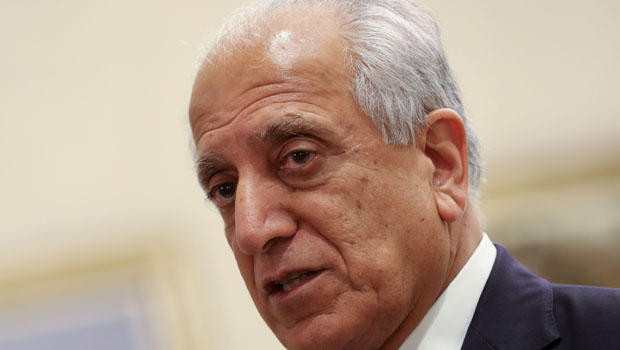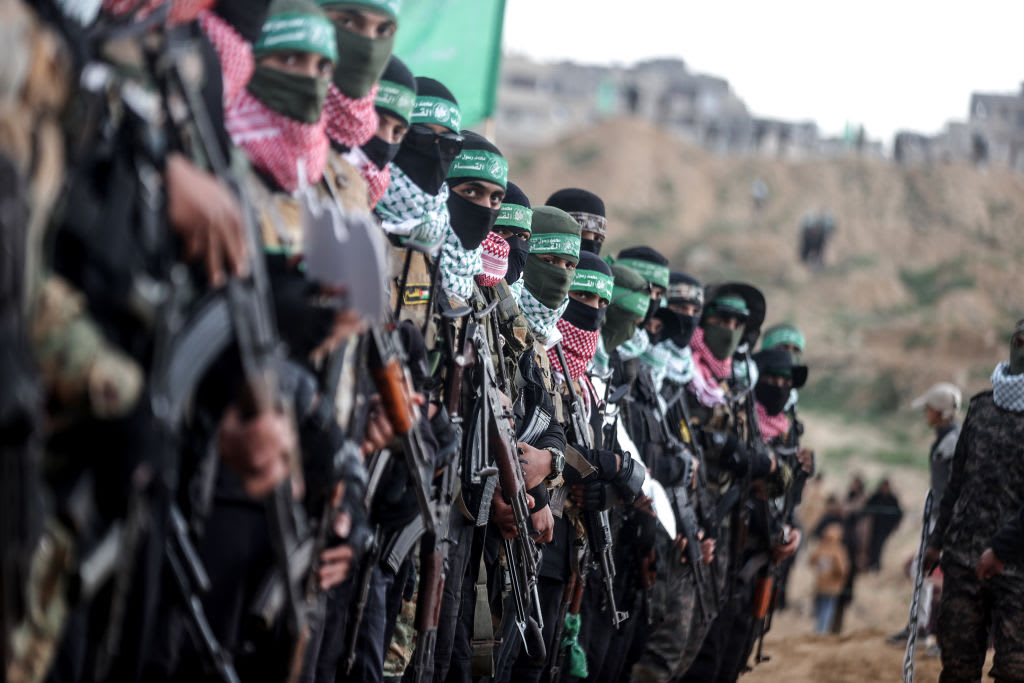"Excellent progress" reported in U.S.-Taliban peace talks
Kabul, Afghanistan -- The United States and the Taliban have resolved differences in peace talks over U.S. troop withdrawal from Afghanistan, as well as over insurgent guarantees on cutting ties with other extremist groups, a Taliban official said Tuesday.
The development came during U.S.-Taliban talks over the past two days in the Gulf Arab state of Qatar, where the Taliban maintain a political office.
The U.S. side did not immediately confirm or provide details of what was resolved but the U.S. envoy reported "excellent progress" in the talks. A State department spokesperson told CBS News, "There are still details to discuss. As a result, there is no agreement yet. Any agreement we conclude will be condition-based. We are pursuing a peace agreement, not a withdrawal agreement."
The Taliban official spoke on condition of anonymity because he was not authorized to discuss details of the negotiations.
Technical teams from the two sides were continuing discussions on Tuesday in Doha.
U.S. peace envoy Zalmay Khalilzad, who has been tasked with finding a peaceful resolution to the nearly 18-year war, America's longest conflict, has made intra-Afghan talks and a permanent cease-fire two of his priorities in the negotiations.
Khalilizad, who later traveled to New Delhi, said in a Twitter post overnight that "we have made excellent progress" in the discussions.
However, the talks in Qatar have sidelined the government in Kabul. The Taliban refuse to talk directly with government representatives, accusing President Ashraf Ghani's government of being a puppet of the U.S.
The Taliban have kept up a near-daily rate of deadly attacks, despite holding several rounds of peace talks with Khalilizad since his appointment as peace envoy almost a year ago. The Taliban now control roughly half of Afghanistan and are at their strongest since 2001, when the U.S.-led invasion toppled their government, which had harbored al-Qaeda leader Osama bin Laden.
The U.S. and the Taliban now appear to be closing in on an agreement under which U.S. forces would withdraw in exchange for guarantees that Afghanistan would not become a haven for other terrorist groups.
Khalilzad has said he is hoping for a final agreement by Sept. 1 that would allow the withdrawal of U.S. and NATO troops. Over 20,000 U.S. and NATO troops are in Afghanistan, including some 14,000 U.S. forces.
CBS News correspondent David Martin reported last week that the U.S. is prepared to draw down the 14,000 troops in Afghanistan to 8,000 or 9,000 as part of a peace deal with the Taliban.
The U.S. and NATO formally concluded their combat mission in 2014, but the American and allied troops continue to train and build the Afghan military. Separately, U.S. forces also assist Afghan troops in airstrikes and raids on the Taliban and against the Islamic State of Iraq and Syria (ISIS)'s affiliate in Afghanistan.
President Trump has often expressed his exasperation with America's continued involvement in Afghanistan and his desire to bring troops home.
Also on Tuesday, the Taliban in a statement called on fellow Afghans to boycott next month's presidential election and warned them to stay away from rallies "that could become potential targets."
The Taliban called the Sept. 28 election, which has been delayed this year over security and organizational concerns, a "sham." Ghani, who is seeking a second term in office, is among the more than a dozen candidates.




